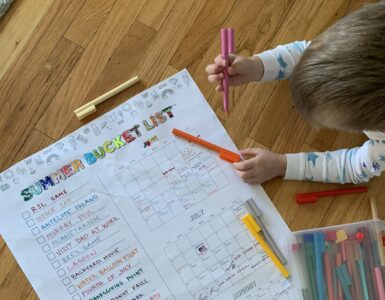There are several important dates to note in an election year.
It’s an election year, and if you want to be more in tune with what’s going on, we’re making it very simple and easy to understand. From primaries to debates, knowing pivotal dates isn’t just about politics, it’s about empowering yourself to make choices.
Tricia Bunderson, with the Utah Civics Project, shares some important election year dates to mark on your calendars.
March 5: Caucus Night
A caucus is a gathering of voters of the same political party from an individual precinct or neighborhood.
“A precinct usually includes about 1200 voters, but that can vary a bit depending on your area,” Tricia said.
A caucus can feel, even, a bit charming because of how grassroots it is. But, it’s for that same reason that some people throw it aside. Tricia said this event is actually really important.
“So a caucus may actually be where your vote matters the very most,” Tricia emphasized. “Turnout is usually quite small, and that group of people is electing delegates for your neighborhood. Those delegates then go on to vote for which candidates actually advance to the primary election. So… it matters.”
Homework: Attend caucus night! Go online to your party website and find your caucus meeting location. If you are unable to attend in person, most parties are offering an absentee ballot option.
March/April: County & State Conventions
At a convention, delegates are going to five or six candidates to one or two. However, sometimes a race is over and done by a convention.
“Rules state that at convention, if a candidate gets more than 60% of the delegate vote, all of the other convention candidates will be eliminated,” Tricia informed.
Homework: Find out what happened at your county and state conventions. Read some news articles or ask the delegates in your neighborhood what the results were.
Extra credit: Contact your delegates BEFORE the convention to let them know your thoughts on specific candidates.
June 25: Primary Election
“The primary election is where voters get to decide which one candidate is going to move on to the General Election in November,” Tricia explained.
Many people associate voting with the general election in November, but the primary election is where a lot of the decisions get made.
“In the last general election for the Utah State Legislature, 49%of the candidates did not have a challenger from the other major political party. Those decisions were made in the primary election,” Tricia said. “Half of our lawmakers were decided in the primary elections.”
Homework: Vote! The primary election is where the action is. Ballots are mailed three weeks before the election, so watch your mailbox near the beginning of June. It’s a busy time with vacations and camps, so when you get your ballot, fill it out and send it back early while it’s fresh in your mind.
October 9: Presidential Debate in SLC
The third and final presidential debate will be held at the University of Utah right here in Salt Lake City on October 9th at Kingsbury Hall. This is the first time Utah has hosed a presidential debate. Roughly 100 million viewers are expected worldwide, so it’s all eyes on Utah!
Homework: Watch the debate.
Extra Credit: Read about the debate afterward from a right-leaning source, a left-leaning source, and a reputable fact-checking website.
“Doing this will give you a lot of context surrounding some of the issues that were talked about during the debate,” Tricia said.
November 5: Election Day
This is the election that most of us are familiar with! In 2020, 90% of active Utah voters participated in the general election.
Election Day is always the first Tuesday after the first Monday in November. This year, that is November 5th.
Ballots will be mailed out to every active registered voter three weeks before the election.
Homework: Vote – and remind three friends to vote. Then, take a nap or get a massage!
Find more political insights on Instagram, @utahcivicsproject.















Add comment